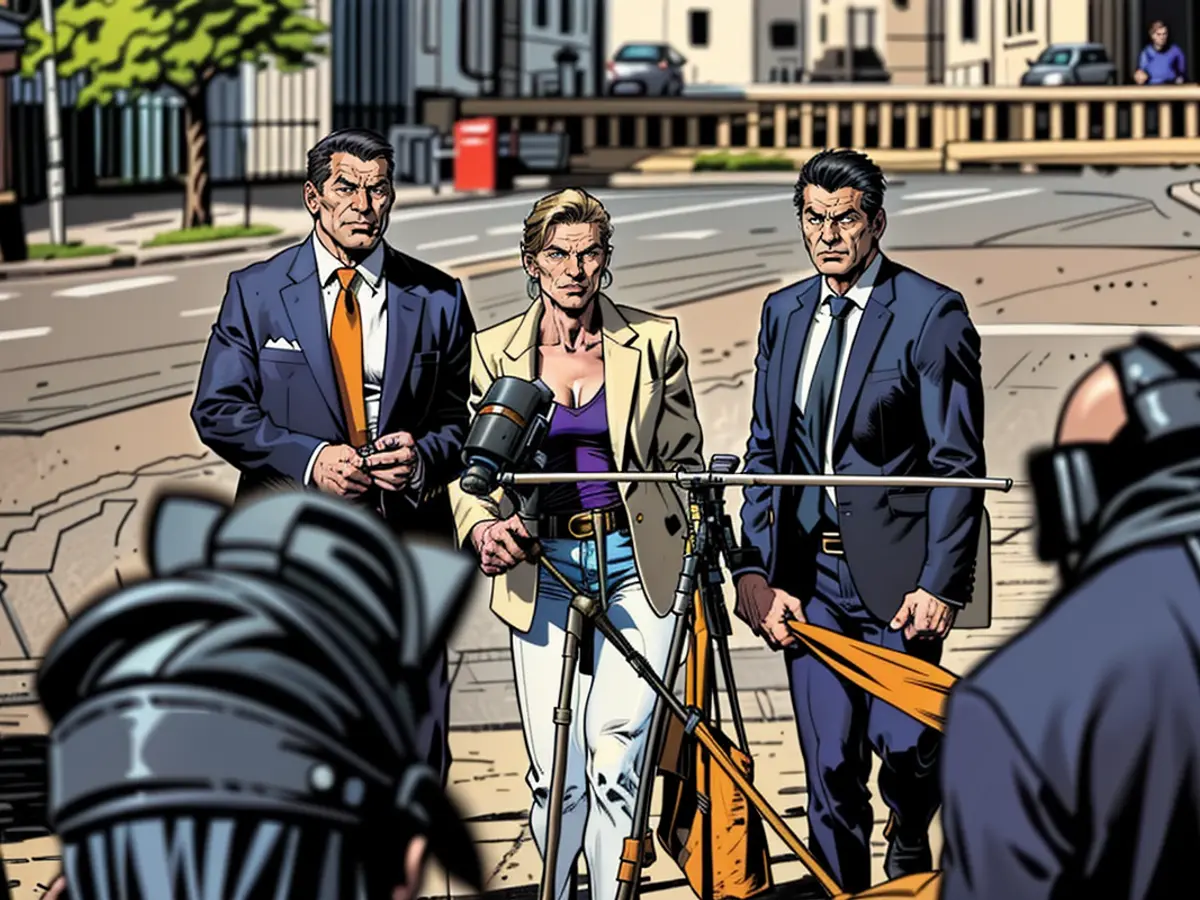- Attendees Seek Resolutions at Immigration Issues Discussions
A few individuals involved in the immigration discussion expressed eagerness to collaborate. "I'm hoping for clarity: initial understanding of the topic and a plan for action. That's what we aim for today," expressed Lower Saxony's Minister President Stephan Weil (SPD) as he approached the German interior ministry in Berlin. Weil admitted that achieving a consensus on all matters in a single day might be unrealistic given the numerous issues at hand and the apparent disparities in perspectives.
Frei looks forward to "positive results"
The initial parliamentary business manager of the Union faction, Thorsten Frei (CDU), expressed: "We'd like to collaborate with the government to explore whether there's potential for beneficial outcomes for the country. These talks are an opportunity to do so. We enter these discussions with the hope that something positive will emerge in the end."
CDU and CSU members expect the SPD-Greens-FDP traffic light coalition to implement more comprehensive measures than those proposed in the "security package." The government unveiled this following the suspected Islamist-motivated knife attack in Solingen. The package includes measures in three areas: a stricter approach to deporting denied asylum seekers, measures to combat Islamic terrorism more effectively, and strengthening gun control laws.
"Recent weeks and months have revealed that the asylum and migration system has become increasingly dysfunctional," Frei noted. "In our opinion, a fundamental change in Germany's asylum and migration policy is required. Simplifying deportations is not enough; the number of migrants entering Germany should be reduced."
Lindholz calls for significant shifts
Union faction vice-president Andrea Lindholz (CSU) advocated for "a greater readiness for change." "The numbers haven't substantially decreased, and our communities are reaching their limits." At the same time, she urged serious efforts. "One shouldn't get the impression afterwards that this was only due to the elections," she said, referring to the elections in Thuringia and Saxony, where the traffic light parties underperformed - while the migration-critical AfD performed exceptionally well.
The Hessian interior minister Roman Poseck (CDU) demanded: "We must do everything to ensure that fewer people come to us, because as it stands, it places a tremendous burden on our state and society. As it stands, it also poses a security risk for our country, and we must no longer tolerate this." There should also be a discussion about reevaluating the situation in Syria and Afghanistan, as there are many individuals obligated for deportation from both countries.
The meeting between the traffic light coalition, Union, and state representatives on migration policy commenced in the afternoon at the German interior ministry in Berlin. The discussions were scheduled to last for two hours, up until around 5 p.m.
Thorsten Frei, being free from any specific commitments, expressed his enthusiasm for the potential of positive outcomes from the collaboration between the Union faction and the government. Despite theinitial deployment of the "security package" following the Solingen attack, Frei advocated for a more fundamental change in Germany's asylum and migration policy, calling for a reduction in migrant entries and simplified deportations.








